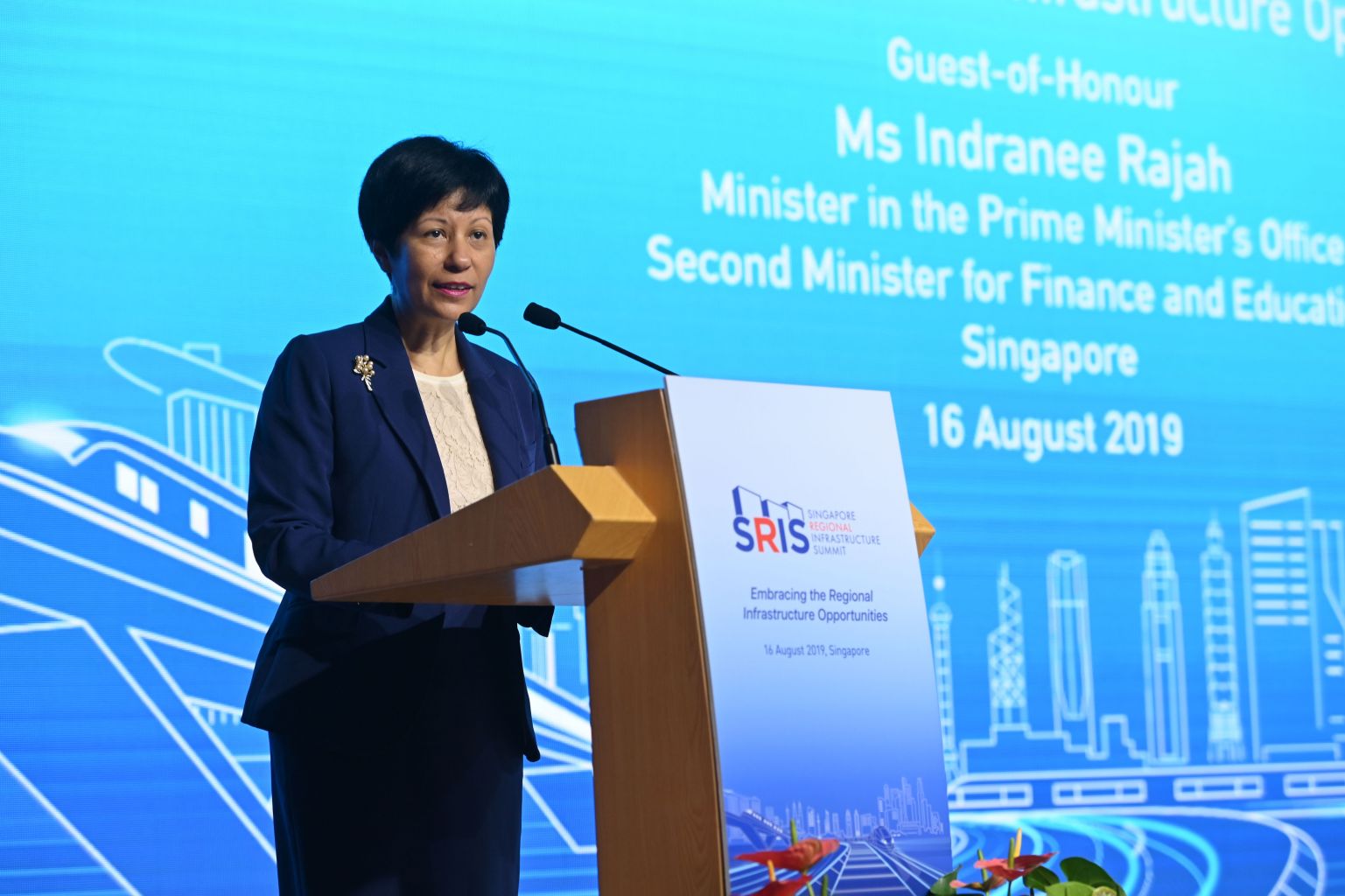Public-private partnership needed to address infrastructure financing challenges: Indranee
Sign up now: Get ST's newsletters delivered to your inbox

Minister in the Prime Minister's Office Indranee Rajah during her keynote speech at the Singapore Regional Infrastructure Summit on Aug 16, 2019. PHOTO: SINGAPORE BUSINESS FEDERATION
Follow topic:
SINGAPORE - The current rate of public sector financing for infrastructure projects is insufficient and unsustainable for Asia's significant growing infrastructure needs, said Minister in the Prime Minister's Office Indranee Rajah on Friday (Aug 16).
Government financing accounts for 90 per cent of infrastructure expenditure in Asia, compared to 70 per cent in emerging markets and 40 per cent worldwide, she noted.
"This rate of government financing is unsustainable and governments are looking at crowd sourcing private sector investments to help fill in the gap," she said at the Singapore Regional Infrastructure Summit (SRIS), where she was the guest of honour.
However, there are challenges in closing this financing gap, such as geopolitical tensions, concerns over the environmental impact of developments, and investors' concerns that the risks in infrastructure financing are not worth the expected returns.
In her speech, Ms Indranee, who is also Second Minister for Finance and Education, identified several steps which can be taken to overcome these challenges and encourage infrastructure financing and development.
"A marriage between the public sector project needs and private sector capabilities and expertise is required," she said.
Governments "need to build up capabilities and work with the private sector in order to generate a pipeline of investment-ready projects", she said, adding that multilateral development banks have set up preparation facilities to provide financial assistance aiming to create this pipeline.
Ms Indranee highlighted that in Bangladesh, with the support of the Asian Development Bank's Urban Governance and Infrastructure Improvement Project and municipal townships representatives, more than 580km of improved roads, 260km of improved drainage systems and upgraded sanitation facilities have been financed and made possible, allowing people to move from slums by river banks to housing complexes with electricity and water.
Identifying legal reforms is also needed to develop a conducive environment for project development and facilitating investments, as both stakeholders and financiers need some form of assurance about the risks they undertake, she noted.
Infrastructure financing undertaken must also be sustainable - both fiscally and environmentally - to address investors' growing demands for green financing options as a means for sustainable development to combat climate change, Ms Indranee said.
These steps would give investors "better clarity of the bankability of the projects".
She pointed out that most of the challenges facing project finance are short term, while there are long-term benefits to be reaped from infrastructure development.
"It will be difficult in the initial stage, but once the complex projects take off, more players will have confidence to invest in longer-term opportunities," she said.
The inaugural SRIS was organised by the Singapore Business Federation (SBF) and held at The Ritz-Carlton, Millenia Singapore.
In his address, SBF chairman Teo Siong Seng said: "Through this new platform, we hope to help position Singapore as Asia's infrastructure hub, and bring together regional players in the infrastructure space to discuss opportunities in this region."

